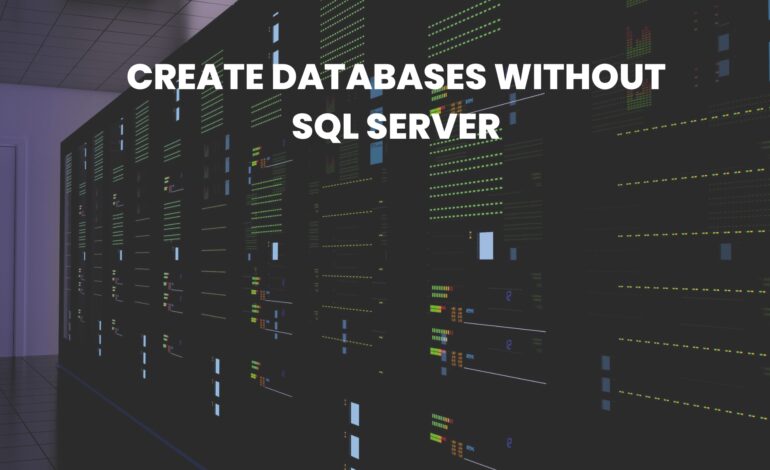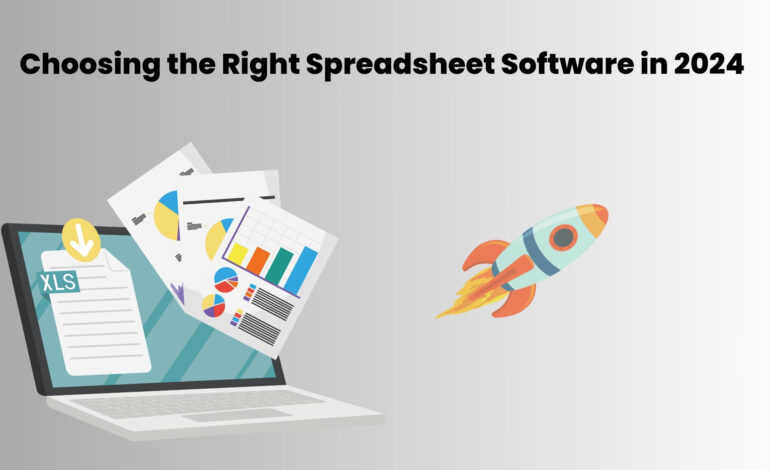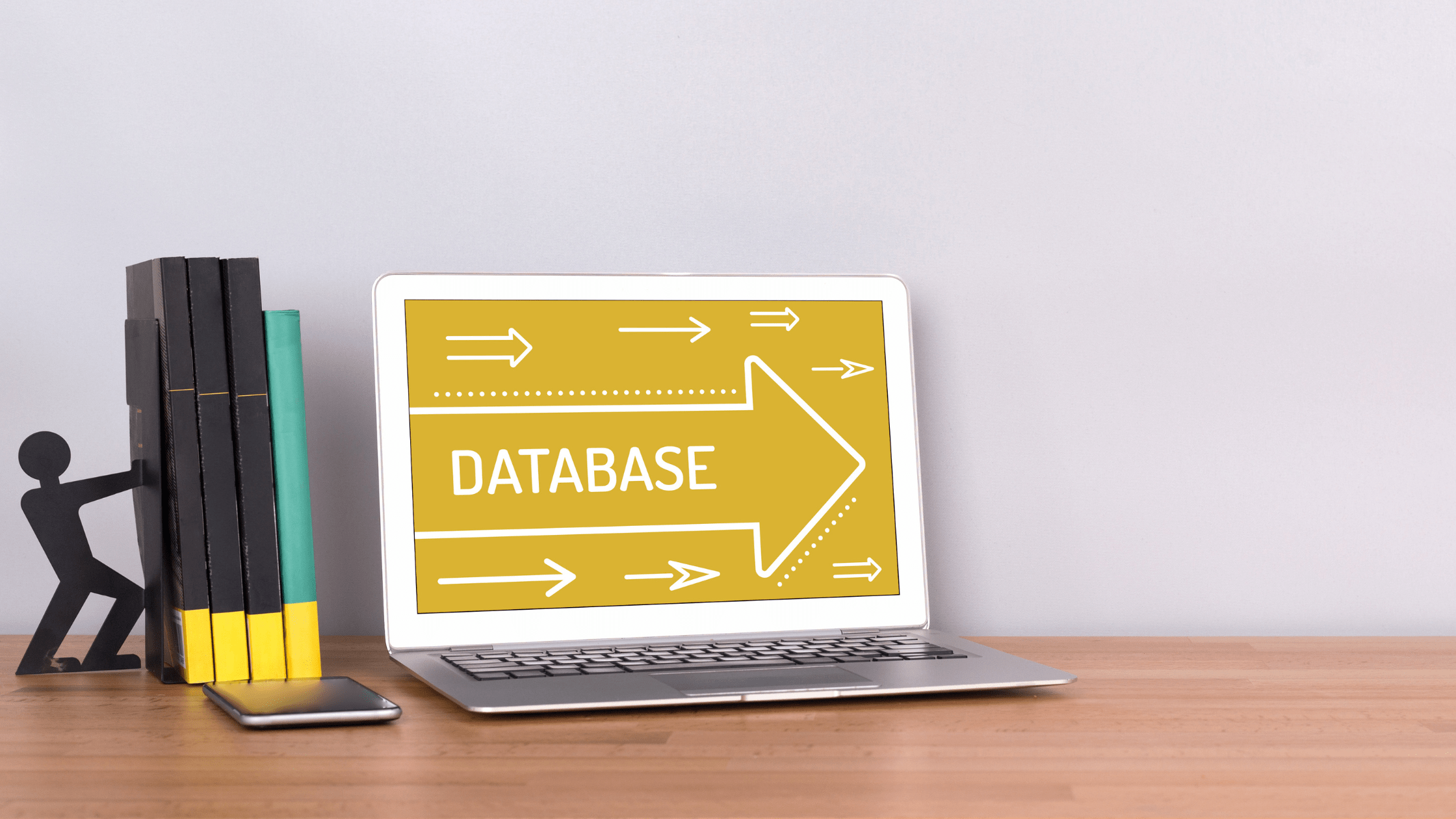Open Source vs. Commercial Databases: A Comprehensive Guide
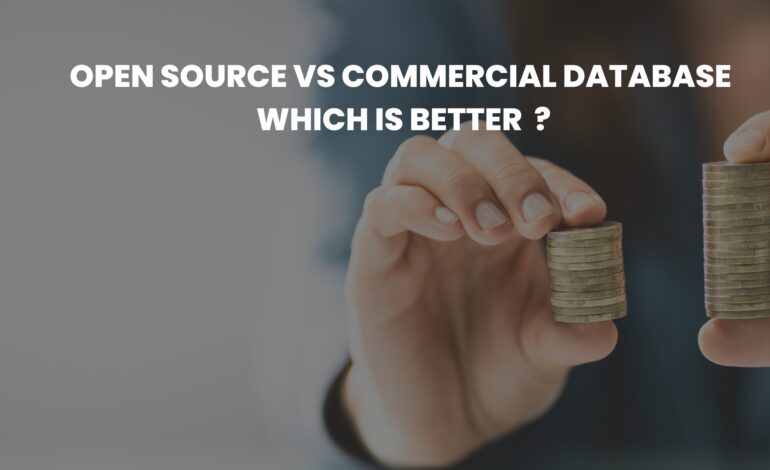
In today’s data-driven world, organizations of all sizes are increasingly reliant on databases to manage their critical data assets. When choosing a database solution, organizations must carefully consider the trade-offs between open source and commercial options.
Open Source Database Software
Open source database software is freely available and its source code is open for anyone to inspect, modify, and distribute. This open development model fosters a collaborative environment, leading to rapid innovation and a large community of support. Open source databases are often seen as a cost-effective solution, as there are no upfront licensing fees and ongoing maintenance costs can be minimized by in-house expertise or third-party support services.
Commercial Database Software
Commercial databases are created and sold by companies that own the rights to them. Businesses must pay to use these databases and also pay for ongoing support and updates. Paid databases usually have more features and are designed for large companies. They have better security, can work faster, and are always available. They also come with help from the company that makes them, so you can get your problems fixed quickly and get the latest updates.
Choosing the Right Database Solution
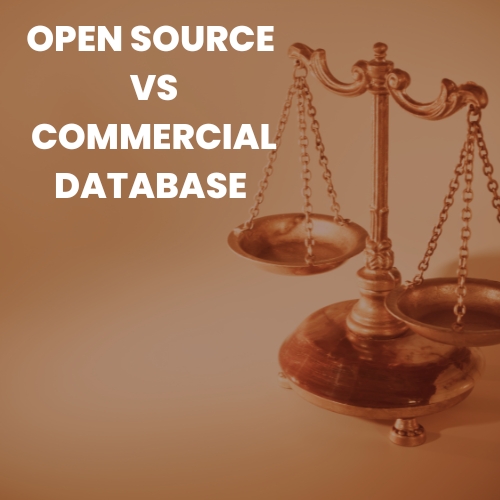
The decision between open source and commercial database software depends on several factors, including:
Budget:
Open source databases offer a significant cost advantage over commercial options, especially for organizations with limited budgets. However, the cost savings may be offset by the need for in-house expertise or third-party support.
Features and Performance:
Paid databases usually have more features and can be made to work faster, making them a good choice for tasks that need a lot of power. However, free databases are getting better all the time and may have enough features for many tasks.
Security and Reliability:
Paid databases are often thought to be safer and more reliable than free ones because the company that makes them puts a lot of money into testing them for security holes and fixing them. However, free databases can be just as safe if they are managed and set up correctly.
Support:
Commercial databases provide dedicated technical support from the vendor, ensuring prompt resolution of issues and access to the latest product enhancements. Open source databases may require in-house expertise or third-party support services.
Scalability:
Paid databases can grow as your company’s data needs grow. Free databases may also be able to grow, but it depends on the type of database and how it is set up.
Community and Ecosystem:
Free databases have a large group of users and developers who can help with problems and share knowledge. Paid databases may have a smaller group, but the company usually provides plenty of instructions and training.
Data Governance and Compliance:
Companies that must follow strict data rules may need to choose a vendor with a proven record of compliance and support for their specific regulations.
Commercial databases are created by companies and sold to other businesses who need them. Few commercial databases are Microsoft SQL Server, Amazon Aurora, MongoDB, Apache Cassandra, FLEXlists and many more.
Explore more : Create database servers without SQL
Here is a table summarizing the key differences between open source and commercial databases :
| Feature | Open Source Databases | Commercial Databases |
|---|---|---|
| Cost | Free | Cost money to use |
| Features | Fewer features | More features |
| Performance | May be slower | Can be made faster |
| Support | Community support | Company support |
| Security | Can be secure if managed correctly | Often thought to be more secure |
Conclusion
Choosing the right database software depends on your organization’s unique needs. Open source databases are free to use and can be customized, but they may require more in-house expertise. Commercial databases offer more features and support, but they come with a price tag. The best choice is the one that meets your organization’s needs and budget.

